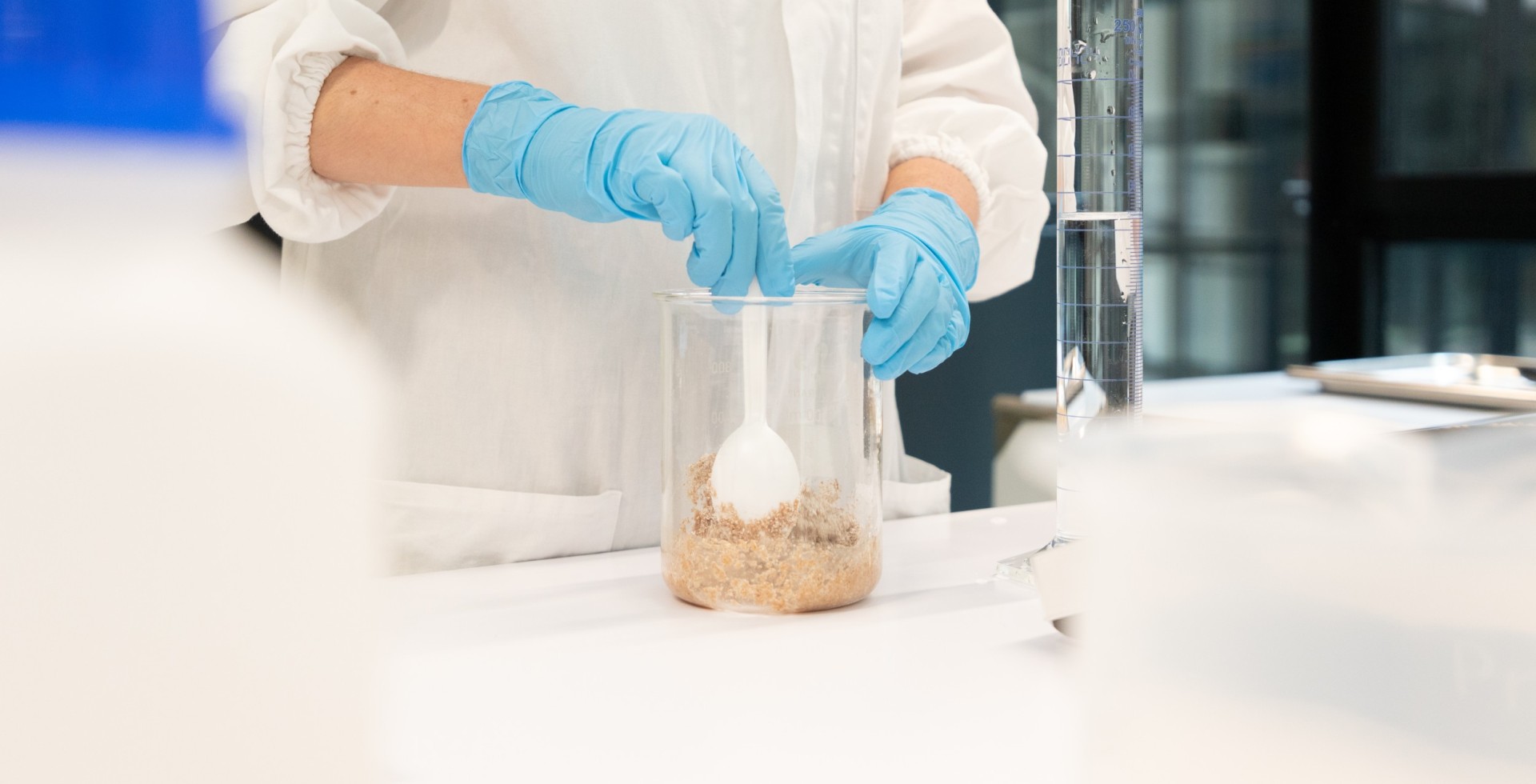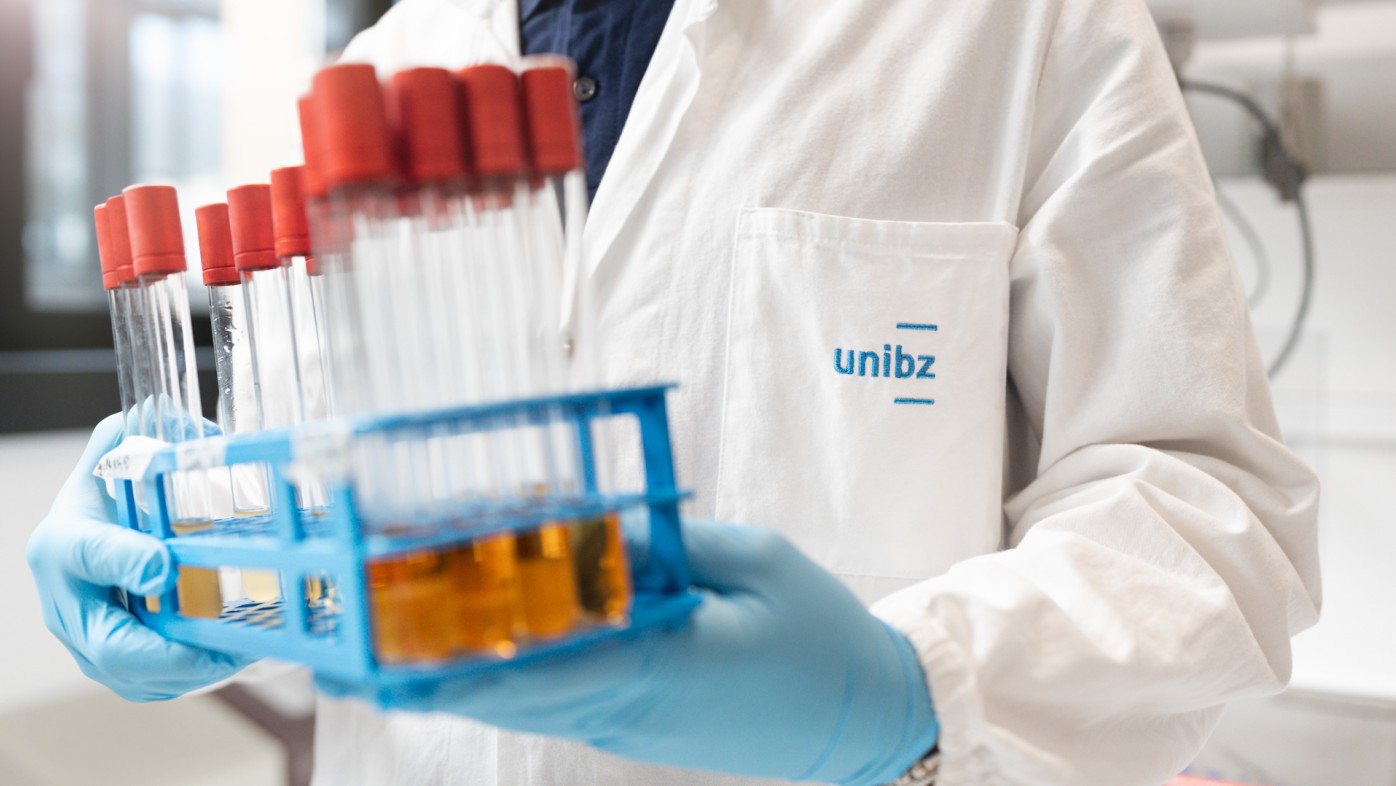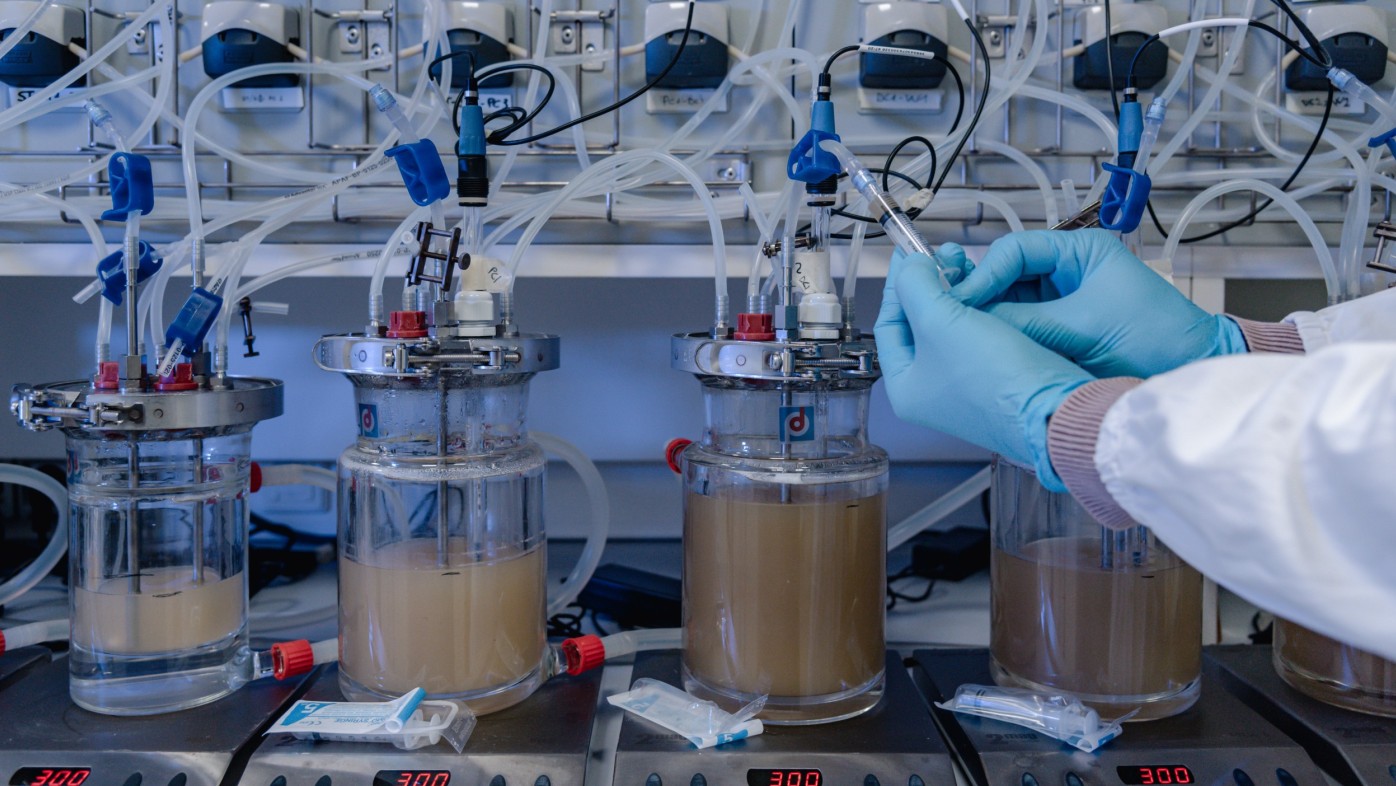
Research
Our research themes at ICOFF
At ICOFF, our research focuses on three key areas: optimising innovative food processes and products, exploring the food-human axis, and recycling food wastes into valuable resources. Each of these areas is at the forefront of food science and addresses critical challenges and opportunities. Our goal is to advance knowledge while creating practical solutions that promote health, sustainability...
Development and optimisation of innovative processes and products
In recent decades, the development of new functional foods with health-promoting properties has gained significant attention in the scientific community. Many of these functional products are created through microbial fermentation, particularly using lactic acid bacteria. The added value of fermentation can be both direct (probiotic effect) and indirect (biogenic effect) [7]. The first is due to the inclusion of the functional micro-organisms used as fermentation starters, making the fermented food a carrier of micro-organisms. The second results from the biotransformation carried out by the starter micro-organisms and, consequently, the uptake of microbial metabolites (e.g., organic acids, peptides, amino acids, γ-amino butyric acid and conjugated linoleic acid) synthesised during fermentation. In recent years, fermentation has also gained traction as a new sustainable strategy to reduce food intolerances and anti-nutritional factors. In addition to fermentation’s functional aspects, it is also often an effective biotechnology for modulating and improving the organoleptic properties of foods (e.g., sourdough bakery products, dairy products and fermented fruits and vegetables) and extending their shelf life.
ICOFF aims to become a leader in developing innovative fermentation processes that enhance food functionality, nutrition and preservation while optimising production methods and creating new fermented products. Our mission is to transform the expertise and technologies developed by the Micro4Food group of the Free University of Bozen-Bolzano – as evidenced by its numerous publications and patents in the field – into innovative food solutions that enhance consumer health and well-being through food functionalisation.
The research process follows a comprehensive approach comprising several steps:
Ad hoc selection of starters based on metabolic capacities and pro-technological properties
Modelling and assembly of the microbiome to achieve customised food fermentations using omics techniques
Optimisation of the fermentation protocol and production process to maximise results, leading to the creation of prototypes
Development of prototypes characterised by their microbiological, physical, biochemical, nutritional, sensory and functional attributes

The food-human axis
The human gut microbiome hosts a community of micro-organisms that is dynamic and complex – taxonomically as well as functionally. The interactions between these microbiota and the host not only significantly influence the digestive tract but also play a key role in many immunological and physiological responses, with relevant implications for our health and well-being [8]. Many bacterial strains and their metabolites have displayed a positive correlation with beneficial effects against various diseases, including diabetes, obesity, ulcerative colitis, colon cancer and irritable bowel syndrome, as well as neurodegenerative and cardiovascular diseases.
Diet is a key factor in determining the composition and evolution of the gut microbiome [8]. Consequently, modulating the gut microbiome is a promising strategy to protect health. Although fermentation is known to improve the bioavailability of nutrients, bioactive compounds and prebiotics, the effects of traditional and novel fermented foods and individual ingredients on the gut microbiota remain to be explored.
In this research context, ICOFF aims to shed light on the ecological evolution and underlying mechanisms involved in assembling the gut microbiome, using the Simulator of the Human Intestinal Microbial Ecosystem (SHIME). This dynamic and scientifically validated model accurately replicates the human gastrointestinal tract, allowing researchers to recreate the gut microbiota from a faecal sample. This in vitro research tool not only complements in vivo studies but is also currently the most promising method for precisely mapping the effects of specific foods, ingredients and probiotics. By eliminating the confounding factors of other dietary influences and reducing the variability introduced by human physiology, this technology allows for a detailed study of ecosystem changes [9]. It enables researchers to explore how fermented foods impact the microbiome in both the short and medium term and remodel the metabolome.

Recycling of by-products and food waste and valorisation of alternative raw materials
Approximately 89 million tonnes of food are wasted in the European Union each year, leading to an economic loss estimated at EUR 143 billion. This enormous accumulation of residual biomass poses a major challenge for the agro-food industry, with fruit and vegetable processing alone responsible for roughly 50 % of the organic by-products generated. These by-products often have limited commercial value due to their high water content, rapid oxidation and susceptibility to enzymatic and microbial spoilage. Moreover, their disposal has high environmental impacts and significant costs [6].
Given this situation, effectively managing by-products and waste from the agro-food chain has become a critical environmental and economic issue across the globe. The need for efficient and sustainable recycling processes is more acute than ever.
Traditionally, these by-products have been used in animal feed or to produce a limited range of derivatives, including organic acids, enzymes and pectin, or were simply burned. However, these materials still hold untapped potential as sources of nutrients, fibre, chemicals, phytochemicals and biogenic compounds, such as phenolics [6].
To fully realise their potential, these residual resources often require transformation. This can be facilitated by the microbial activity involved in fermenting waste and by-products. While microbial fermentation is a promising and versatile technique, it remains underexplored, particularly in terms of how it can leverage the inherent bioactivity of agro-food by-products. Additionally, there is growing interest in the creation of new supply chain models based on alternative food sources, including alternative protein feedstocks. However, given their unique chemical and functional properties, transforming these raw materials into ingredients for food and beverages requires the application of customised fermentation processes.
ICOFF focuses on exploring the potential of lactic acid bacteria, yeasts and other suitable microbial groups to develop customised fermentation processes. These processes aim to valorise waste, by-products and alternative raw materials, converting them into valuable resources for producing ingredients, biogenic compound-enriched food supplements and nutraceuticals to benefit the food, pharmaceutical and cosmetic industries.


